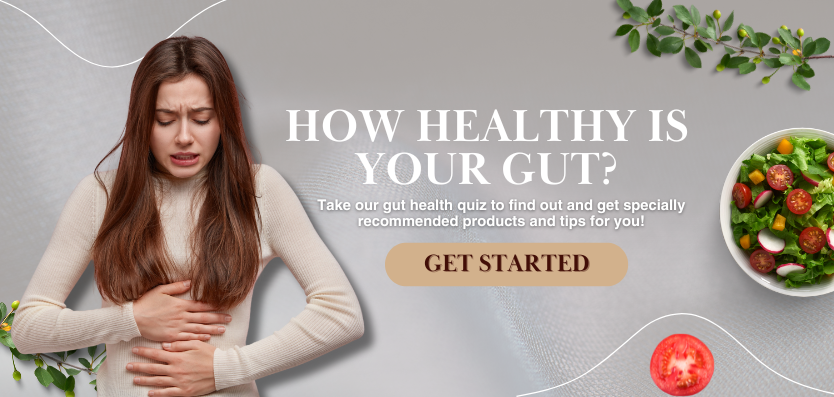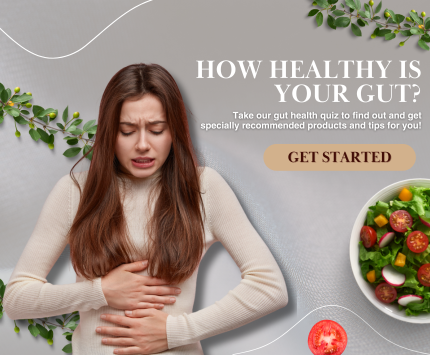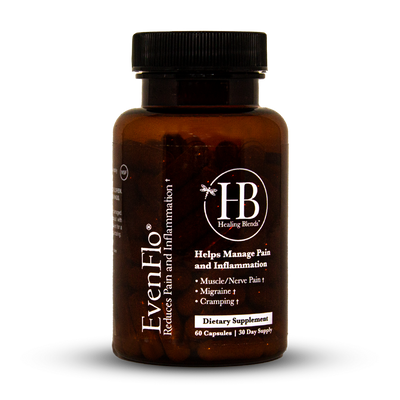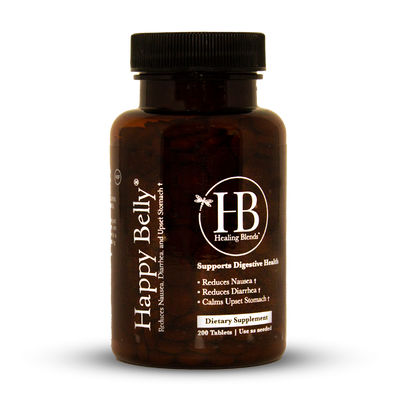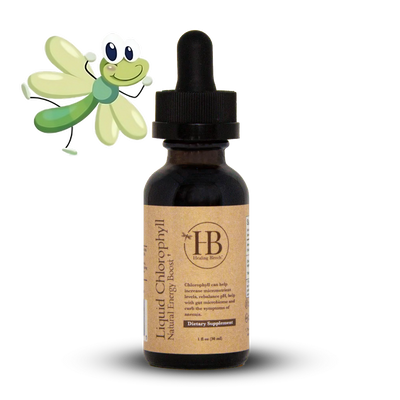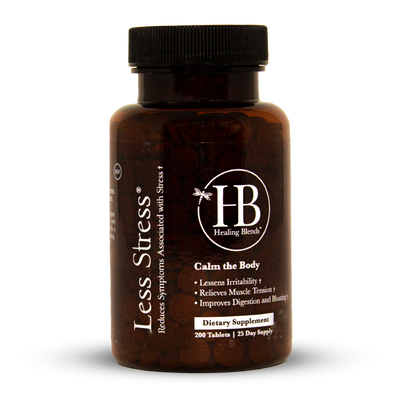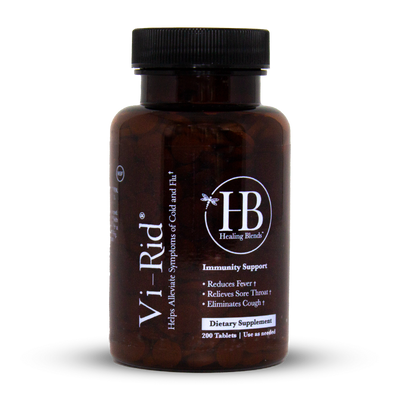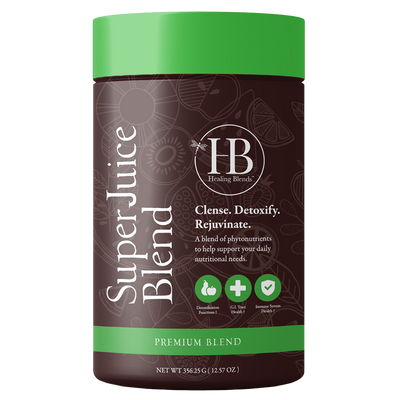Hypertension: What is High Blood Pressure? Hypertension Treatment, and Hypertension Prevention.
Table of Contents
- What is Hypertension?
- What are the Two Types of Hypertension?
- What are the Symptoms of Hypertension?
- What Causes Hypertension?
- Who Can Get Hypertension & Why?
- Blood Pressure Numbers: Quick Guide
- How Can Hypertension Be Prevented?
- How Does Diet Affect Hypertension?
- Herbs Used to Treat Hypertension
- Evidence Based Medicine & Hypertension
- Traditional Medicine & Hypertension
- Supplements Used to Treat Hypertension
- Lifestyle Suggestions to Manage Hypertension in 2021
What is Hypertension?
Hypertension is a chronic condition in which blood pressure remains elevated. The pressure strains the heart as it pumps blood and the blood exerts more force on the arteries, which become susceptible to damage.
Hypertension develops gradually and increases morbidity and mortality in patients. If left unchecked and untreated, hypertension can eventually lead to heart disease and stroke. The pathophysiology of hypertension is complex and elusive, despite years of research on the subject.
High blood pressure is a more common or colloquial hypertension definition. There are primarily two types of hypertension – primary/essential and secondary.
We will go into the subtypes and classification in a subsequent section.
The common symptoms of hypertension include fatigue, chest pain, dizziness, severe headaches, irregular heartbeat, and sweating.
It is advised to get regular checkups to detect it early and consult a healthcare professional for some form of hypertension treatment.
Ideally, the prevention of hypertension through a good diet, lifestyle, and regular exercise is the best approach to sustain normal blood pressure.
What are the Two Types of Hypertension?
The two types of Hypertension are primary hypertension (or essential hypertension) and secondary Hypertension. 95% of the cases fall under “essential/primary hypertension” – a condition where the cause of high blood pressure remains unknown.
The other type, secondary hypertension, occurs as a side-effect of certain medications or due to another medical condition i.e. kidney disease or endocrine disorders.
Additionally, some doctors also refer to this as the two types of systemic hypertension: primary and secondary.
What are the 4 stages of Hypertension?
Besides these subtypes of hypertension, the classification of hypertension is further divided into stages by medical professionals.
- Normal
- Prehypertension
- Stage 1
- Stage 2

What is Prehypertension?
Prehypertension, as the name suggests, is a ‘warning stage’ or a sign that an individual is at risk of hypertension. It is characterized by a systolic pressure from 120–139mm Hg and 80–89 mm Hg.
Your blood pressure fluctuates on different days, so healthcare practitioners will check your pressure on multiple occasions to confirm their diagnosis of prehypertension. At this point, an individual will not be prescribed any blood pressure medication.
Nevertheless, prehypertension must be taken seriously. Various dietary and lifestyle changes can be made to reverse prehypertension. These changes include a balanced diet, sufficient sleep, regular exercise, stress-management, and relaxation techniques.
The use of herbs and natural supplements can also be immensely helpful in reversing prehypertension. Polyherbal blends like LessStress and Super Juice Blend can help you handle stress, improve blood flow and manage healthy blood pressure levels.
What is Stage 1 Hypertension?
Stage 1 Hypertension is medically defined as systolic blood pressure of 130-139 mmHG and a diastolic reading of 80-89 mmHg. Based on your ASCVD (the risk of heart disease/stroke over the next 10-year period), a doctor may or may not prescribe medication.
Studies indicate that the treatment of mild hypertension (stage 1) can considerably reduce your risk of death if your ASCVD is greater than 10%. Doctors also factor in other aspects of your lifestyle and existing health conditions like coronary heart disease.
Either way, the aforementioned dietary and lifestyle changes must be implemented to control and manage hypertension. Natural supplements like HTNCare and LessStress can provide valuable support to make a transition to a healthy lifestyle and manage your blood pressure levels.
What is Stage 2 Hypertension?
Stage 2 Hypertension is medically defined as systolic blood pressure greater than or equal to 140 mmHG (systolic) and 90 mmHg (diastolic). Stage 2 individuals should promptly visit a hypertension care and management facility for a diagnosis and prognosis.
Most healthcare practitioners use a 3-pronged approach of a)) conventional BP medication, b) diet and lifestyle changes, and 3) exercise and supplements as an adjunctive treatment. The priority is to set a goal for a month and monitor the improvement in the health of the patient.
The characteristic high blood pressure of Stage-2 hypertension needs to be tackled with a firm resolve and commitment to improve your health. We’ll talk about natural ways and lifestyle factors to control and manage hypertension in a later segment.
Studies have shown that nearly 85% of high blood pressure is a direct result of daily stress. Supplements like HTNCare, PeacefulCalm, and LessStress can help protect your body from the impact of stress.
What are the Symptoms of Hypertension?
The common symptoms of hypertension or high blood pressure are:
If you experience a majority of these symptoms, you may have high blood pressure numbers. You should consult a doctor for a checkup and subsequent high blood pressure treatment, if necessary.
In some patients, cervical spondylosis or elevated resting blood pressure levels can lead to neck pain, one of the high blood pressure symptoms. A few other symptoms of high blood pressure, skin rash, blood spots in the eyes, and facial flushing may also be indicative of hypertension.
What causes blood pressure to spike suddenly?
Stressful events, bad news, or deadlines can lead to situations where a patient may experience a sudden spike. Salty food can also be a culprit, especially if you are salt sensitive. In some cases, certain medications for other conditions, stimulants like alcohol, smoking, or caffeine, and high-pressure work can act as causes of sudden high blood pressure.
Should you be off work with high blood pressure?
If you work in a stressful job environment, you should take some time off from work and start a regimen in consultation with a physician to control hypertension. As a rule of thumb, you should be off work and resting if your blood pressure is greater than 140/90mmHg.
You should also rest if you experience severe symptoms like chest pain, dizziness, and blurred vision as not only will they negatively affect your health, but they can impair your judgment and ability to function normally.
What Causes Hypertension?
In most cases of hypertension, there is no obvious reason or cause for high blood pressure. It may be possible to identify reasons for “secondary hypertension”, which is caused by certain medications and other ailments like kidney disease or thyroid disorders. For primary hypertension, research indicates that the following factors can result in hypertension:
- Genetic causes, Family history
- Exposure to high-stress environments
- Overweight and obesity
- Excessive alcohol consumption and smoking
- High Salt Diet or Salt Sensitivity
- Sedentary lifestyle, Lack of exercise
- Kidney disease, Adrenal disorders, or Thyroid issues
If you notice any symptoms of hypertension, you should consult a doctor to identify for a diagnosis and hypertension treatment. It is also important to identify the cause, if caused by medication, and understand what causes sudden high blood pressure. Let us look at some of the main causes of hypertension in detail:
Obesity & Hypertension:
Excess body weight, be it obesity or overweight, is intimately connected to essential hypertension. By itself, obesity can increase the risk of coronary heart disease, osteoarthritis, hypertension, type 2 diabetes, and various other chronic diseases.
Overweight individuals have an excess of fatty tissue. This leads to vascular resistance, which means the heart has to work harder to pump blood. Over time, this strain on the heart leads to a wide variety of health issues. Moreover, prolonged obesity can cause a gradual loss of kidney function, which exacerbates hypertension.
If you have hypertension, it is important to get your weight under control i.e. reach your individual ideal body weight. You should immediately resort to dietary lifestyle modifications to combat this problem. The best approach is to focus on weight reduction by engaging in physical activity.
Stress & Hypertension:
A high-stress lifestyle is a hotbed for high blood pressure and other health issues like heart disease, anxiety, and depression. Stress causes various hormones to flood the bloodstream to cope with a stressful situation. This increases the heart-rate temporarily and causes the blood vessels to shrink. Such episodes can cause dramatic short-term spikes in blood pressure levels.
Additionally, it’s not just stress but also how people react to stress that leads to hypertension. It can also lead to unhealthy coping mechanisms like excessive alcohol consumption, smoking, stress eating, or isolation – all of which are known to cause hypertension
For good health, it is important to simplify your life and adopt relaxation practices like Tai Chi, yoga, or meditation. If you suffer from anxiety, natural herbal supplements like PeacefulCalm and LessStress can help you maintain your composure and manage your blood pressure.
Diabetes & Hypertension:
Diabetes and hypertension often go hand-in-hand as statistics show that half of all type 2 diabetes patients have high blood pressure. Statistics also indicate that two-thirds of patients with type 2 diabetes face an increased risk of high blood pressure and heart disease.
Diabetes can damage the small blood vessels in the long run, causing their walls to become stiff, which increases blood pressure. Some research suggests that the two may be linked by obesity and/or insulin resistance. Since diabetes patients resist insulin, the sugar in the blood builds up gradually and leads to elevated levels of insulin. This leads to increased salt and fluid retention, which can cause hypertension.
If you have diabetes, it is advised to get regular blood pressure screenings. You can live well with diabetes and prevent complications by adopting a good diet, regular exercise, and natural supplements like A1Care and Super Juice Blend.
Also read: The Interplay Between Obesity, Diabetes, and Male Fertility
Genes & Hypertension: (epigenetic)
The advancement of hypertension is intimately connected to epigenetic mechanisms in the human body. For instance, DNA methylation and histone modification play a vital role in the pathogenesis of high blood pressure.
Studies indicate that herbal blends can play a significant role in adding or removing epigenetic marks on the DNA. In the past decade, researchers have examined the bioactive compounds and antioxidants found in common herbal remedies to study how they exert their antihypertensive effect.
As a result, medical practitioners now welcome the use of antihypertensive herbs as an adjunctive treatment for high blood pressure patients. Evidence-backed herbal extracts are used to formulate all-natural blends like HTN Care. In clinical studies, it has shown favorable results in reducing stress, inflammation, and improving cardiovascular health.
Also Read: How to Correct Epigenetic Alterations Due to High Blood Pressure by Eating Herbs?
Who Can Get Hypertension & Why?
People who are prone to hypertension are those who have one or more high blood pressure risk factors. A risk factor is something that increases your chance of developing a particular disease. For instance, a family history of diabetes is a risk factor for diabetes and smoking is a risk factor for lung cancer. The following are the risk factors common to the diagnosis of hypertension:
- Obesity or overweight
- Sedentary lifestyle
- Age, race, and heritage
- Family history of hypertension
- Smoking
- Excessive consumption of alcohol
- High-Stress Lifestyle
- High Sodium Diet
- Low Potassium Diet
- Chronic conditions (kidney problems or diabetes)
- Chronic Dehydration
If you are subject to any of the risk factors, it is advised to get regular blood pressure screenings at a hypertension care management center to detect it early.
Many patients with prehypertension (blood pressure 140/10 or 140/110) may show no symptoms. This leads to the ‘blood pressure myth’ that since you don’t feel sick, you are fine.
Others avoid screenings under the presumption that it causes extreme pain when taking blood pressure. This is also untrue as the test is fast and simple.
The pressure cuff on the arm can cause momentary discomfort for a few seconds to a minute at the most. Either way, a regular blood pressure check is important for early diagnosis and blood pressure treatment to prevent further complications.
Also Read: Hypertension & African-Americans: How to Identify and Manage High Blood Pressure
Blood Pressure Numbers: Quick Guide
Healthcare workers measure a patient’s blood pressure using a medical device (sphygmomanometer) with an inflatable cuff and gauge to read the measurements. Hypertension is denoted as mmHG because it is measured in millimeters (mm) of mercury (Hg). All results/readings are pairs – two numbers. The first one denotes the systolic or upper value and the second one denotes the diastolic or lower value.
What is the normal blood pressure range?
According to doctors, 90/60mmHg to 120/80mmHg is considered to be the norm when it comes to blood pressure. Anything above 120/80mmHG is regarded as hypertension and anything below 90/60 is considered low blood pressure. Age is a factor in hypertension as blood pressure rises with age.
What is the average blood pressure by age?

How Can Hypertension Be Prevented?
Small changes can lead to a big difference in your health in the long run. Start with simple goals like snacking on fruits and work it up to an overall changeover based on the points mentioned below:
- Maintain Good Weight: Obese and overweight individuals are at high risk.
- Avoid Alcohol: Excessive consumption of alcohol leads to high blood pressure.
- Reduce salt intake: Opt for a low sodium and high potassium diet.
- Healthy and Balanced Diet: Healthful foods or a DASH Diet can manage hypertension.
- Regular Exercise: Aim for 30 minutes of moderate-intensity exercise 3 times a week.
- Stress-management: Use relaxation techniques to manage stress and improve health.
- Herbal Supplements: Herbal supplements like HTNCare and Less Stress can improve your overall health and lower high blood pressure.
We have further discussed natural ways to reduce high blood pressure here.
Herbal supplements like HTNCare, LessStress, and PeacefulCalm can be extremely helpful as you gradually transition to a healthy life. You can also practice techniques like meditation and yoga for emotional and psychological wellbeing to augment your overall health.
You may not always be able to prevent hypertension, but a balanced diet and lifestyle changes will help you manage blood pressure. Let us look at some of these points in detail:
How Does Diet Affect Hypertension?
Research indicates that there is a strong link between certain dietary patterns and the development of hypertension. Dietary strategies and interventions have proven to be an effective medium to prevent and/or manage high blood pressure. Simple changes to your diet are the first step to a high blood pressure treatment at home.
It is advised to eat a diet rich in vegetables, fruits, nuts, seeds, and whole-grains. Additionally, individuals can prevent hypertension by limiting salt and alcohol consumption, eliminating Trans fats and saturated fats, and increasing potassium in the diet. Red meat and processed sugar rank high on the list of foods to avoid with high blood pressure.
Dietary management of high blood pressure involves consulting a healthcare professional to discuss nutritional interventions and a high blood pressure diet plan. The American National Institute of Health (NIH) has also issued dietary recommendations and a DASH Diet that is considered the best dietary strategy/approach to managing hypertension.
DASH Diet:
DASH Diet – Dietary Approaches to Stop Hypertension – is a nutritional intervention based on ancient dietary principles combined with modern scientific knowledge. It is a set of dietary recommendations of foods to eat and avoid to control high blood pressure and other chronic ailments.
The typical recommendations comprise eating more fruits/vegetables, low-fat dairy products, lean meats, whole-grains, nuts, and seeds. Patients are advised to cut down or eliminate trans fats, saturated fats, processed food, sugary drinks, and red meats.
The DASH diet can be traced back to the research and studies of the 90s when the National Institute of Health (NIH) funded multiple projects to explore dietary interventions to tackle diet and obesity-related chronic diseases. Studies show that the DASH diet can lead to significant results in as little as two weeks, with a 6 to 111 mmHg reduction in systolic blood pressure.
In conjunction with a DASH diet, patients are also advised to make some lifestyle changes that include low-to-moderate intensity exercises like jogging, aerobics, yoga, and relaxation techniques like Tai Chi or meditation.
Is Rice Good for High Blood Pressure?
Eating white rice in moderate quantities is acceptable but research indicates that brown rice is significantly healthier as it contains higher amounts of magnesium and potassium. Brown rice also contains six times more fiber (found in the rice bran) than white rice. This fiber is good for weight loss and can help you feel full for longer.
Minerals like magnesium and potassium are important as they mitigate some of the ill-effects of salty foods, which can be helpful in controlling hypertension. Moreover, studies have shown that brown rice has compounds that inhibit angiotensin II – a protein that encourages the development of hypertension.
What Salt is Best for High Blood Pressure?
No-sodium or low-sodium salts (often branded as ‘Lite’) can be healthier alternatives to raw table salt. It is advised to cut back on salt as much as possible if you have elevated blood pressure levels. However, for the occasions when you do consume real salt, you should opt for Himalayan salt or rock salt.
Foods to Avoid with High Blood Pressure:
Food plays a big role in managing hypertension because what you eat has a significant impact on your blood pressure. Here are some foods to avoid or eliminate from your diet:
- Foods high in ‘bad fats’ like trans fats and saturated fats
- Canned soups, canned sauces and pre-packaged salad dressings
- Junk carbs (snacks), fast food, and pickles
- Deli, cured, or processed meat like frankfurters, bologna, pepperoni
- Frozen and processed foods
- Carbonated drinks, alcohol, and beverages with high sugar content
- Full-fat milk, whole milk dairy products
Herbs Used to Treat Hypertension:
Antihypertensive herbs and spices are among the most commonly used treatments for hypertension in developing and underdeveloped nations. Moreover, they are prevalent in all alternative and traditional medicinal systems because they are affordable, natural, and locally available. They also exhibit better bioavailability and little to no side-effects as compared to pharmaceutical medicines.
The last two decades have witnessed a surge in the popularity of herbs as a therapeutic treatment for hypertension in the West. This is concurrent with the growing evidence and scientific literature that supports the use of herbs as an adjunctive treatment to manage and lower blood pressure.
Studies indicate that antihypertensive plants and herbs like cinnamon, basil, kudzu, mistletoe, and many others are rich in beneficial bioactive compounds. This makes them an effective therapeutic medium to support conventional hypertension treatment.
There is a long list of antihypertensive herbs that are used for making natural supplements for high blood pressure. In Ayurveda, Arjuna powder (made from the bark of Terminalia Arjuna) is considered to be a miracle herb for blood pressure. Cilantro, cumin, and cilantro are also commonly used Ayurvedic herbs to attain lower blood pressure.
In TCM, hawthorn berry is the most recommended food to reduce blood pressure. Research indicates that Hawthorne extract can relax blood vessels and improve blood flow, thus lowering blood pressure. Similarly, there are African herbs for high blood pressure"
Besides herbs, you can also use a natural ACE inhibitor as an alternative to manage hypertension. ACE stands for Angiotensin-converting enzyme. Natural ACE inhibitors like flaxseed, pomegranate juice, kiwis, and other foods rich in antioxidants. They are beneficial for the blood vessels and heart and are known to improve the blood flow and flexibilities of arteries.
Also Read: Using Bioactive Nutrients of Herbs to Lower Blood Pressure
Best Herbal Teas for Hypertension:
Herbal teas are not only delicious, but they are also an effective natural way to treat hypertension. Green tea, for instance, can improve the flow of blood and reduce inflammation to effectively control hypertension. Other herbal teas like hibiscus tea, Oolong tea, Chamomile tea, and even regular black tea can lower blood pressure levels by a few points.
Evidence Based Medicine & Hypertension:
‘Evidence based medicine’ (EBM) is an approach that integrates interdisciplinary research with medical expertise. It is highly effective because the treatment is personalized. The doctor takes a patient’s lifestyle, values, and preferences into consideration before deciding the best evidence-based treatment.
Before EBM, it was common for healthcare professionals to use a ‘cookbook’ approach to treating patients with medical ‘recipes’. On the other hand, EBM involves a critical analysis of each patient before coming up with a diagnosis, prognosis, and treatment. This is followed up with additional care and recommendations for adjunctive therapy and lifestyle changes.
Evidence Based Medicine (or EBM) was established in the 90s as a promising new paradigm of medical practice that uses treatments that are universal and backed by scientific research. While it is similar to traditional medicine in some ways, EBM places more emphasis on high-quality evidence to formulate the best medical practice.
In the medical world, EBM is defined as “integrating medical expertise, individual characteristics of a patient, and the best scientific literature while taking decisions related to a patient’s health.”
New studies, research, and facts are growing each day in the medical world. In science, accepted facts are often overturned and may become obsolete with the advent of new information. Medical practitioners and clinicians have to keep up with emerging knowledge, new research published in peer-reviewed journals, and medical advancements from across the globe.
For healthcare practitioners who do this, it becomes a life-long commitment to learning, research, and evaluating scientific literature.
Also Read: 10 Evidence Based Herbs and Spices to control Hypertension (Blood Pressure)
Traditional Medicine & Hypertension:
Hypertension is not considered to be a disease in traditional medicinal systems like Ayurveda, Traditional Chinese Medicine, and other traditional medicinal systems. Instead, it is regarded as a major symptom linked to a systemic imbalance or other diseases like type 2 diabetes, heart disease, erectile dysfunction, and several others.
Hypertension Explained by Ayurveda:
Ayurveda works with the concept of three doshas: vata, pitta, and kapha. Every person has a predominant dosha representing their constitution. In a natural and harmonious state, people are tridoshic (all 3 doshas are balanced). Lifestyle, diet, and environmental factors can disrupt this balance, which leads to various diseases and disorders. Hypertension is caused by an imbalance in the dosha system and various herbs are used to restore this balance in conjunction with dietary and lifestyle changes.
Supplements Used to Treat Hypertension:
A dietary supplement can be in the form of herbs, vitamins, minerals, taken to supplement the micronutrients you get from a balanced diet. They are highly popular and easily available in the form of over-the-counter powders, pills, and drinks. Dietary supplements can be generic or specifically created for certain chronic health problems, like high blood pressure in this context.
Probiotics, fish oil, flaxseed, and green tea are some well-known supplements for low blood pressure. Studies on calcium and hypertension indicate that low daily intake is linked to a higher rate of hypertension. Similar studies on magnesium and hypotension that magnesium supplements can reduce systolic blood pressure.
While plants, herbs, and spice are rich in bioactive compounds, they translate into very small quantities when added to the diet. Moreover, many plants or herbs may not be available locally as they are native to certain climates and regions. This makes it challenging to source them and find ways to use them in the diet.
For those who do manage to succeed, it is still not feasible to attain their health solely by using them as condiments or food toppings. At best, this will lead to varying quantities and unreliable results, which makes it impossible to control and predict their efficacy as a dietary intervention to treat hypertension.
On the other hand, herbal supplements and polyherbal blends are reliable as they use plant and herb extracts in easy-to-store pills with the requisite daily dosage. The Healing Blends HTN-CARE – a potent blend of 7 super-herbs – is one of the best blood pressure support supplements. It includes several evidence-backed herbs/spices like turmeric, cinnamon, licorice, dandelion, codonopsis, citrus peel, and rhubarb.
Why do you need hypertension supplements?
Natural and herbal supplements, blends, and formulations are a good choice for hypertension treatment for the following reasons:
- Cheap, affordable, and effective ways to manage hypertension
- Their efficacy is backed by scientific studies and clinical trials
- These formulations use multiple antihypertensive herbs in the correct dosage
- They have a long shelf-life and are available as easy-to-use tablets or powders
Herbal medicines and supplements outrank their pharmaceutical counterparts when it comes to managing chronic issues like hypertension. Their popularity is fueled by the fact that they are accessible, affordable and have little-to-no side effects when taken in the right dosage.
However, their efficacy is no longer confined to anecdotal evidence or alternative medicinal systems. Modern scientific research has meticulously studied various herbs/spices and found them to be abundant in antioxidants, polyphenols and other bioactive compounds
Hypertension supplements are an evidenced-based approach to combine herbalism and modern medicine to create affordable and effective remedies. Research on herbal bioactive compounds has shown promising results regarding their ability to manage and lower blood pressure.
Our polyherbal blends like LessStress, PeacefulCalm, and HTN Care are formulated with adaptogenic and antihypertensive herbs to help patients control stress, improve blood flow, and manage/repair conditions related to hypertension.
What is the best vitamin to take for high blood pressure?
Folic Acid (or folate) is one of the best vitamins to reduce the risk of high blood pressure and manage hypertension.
Folic acid is a B vitamin. A meta-analysis of 12 research studies observed that folic acid supplementation improves endothelial function and reduces systolic blood pressure.
Lifestyle Suggestions to Manage Hypertension in 2021:
Hypertension is a long-term condition and a leading cause of mortality in the developed world. Moreover, post Covid-19, it has become apparent that people with chronic health issues need to take proactive measures to ensure that they aren’t at any greater risk of infection.
Be Wary of Misinformation Related to Covid-19
Firstly, we advise to be very thorough in verifying the sources of any information that you read when it comes to Covid-19. The pandemic is shadowed by the ‘infodemic’ – the flurry of inaccurate and/or poorly interpreted information on the internet.
Various public figures have, knowingly or unknowingly, contradicted public health experts and added to this confusion. This ranges from politicizing the pandemic to questioning the need for masks to conspiracy theories related to vaccines and other control measures.
Many people falsely propose that Covid-19 is no more dangerous than the seasonal flu, which is an incorrect idea. Hypertension patients aren’t at a higher risk, but many of the disease complications associated with high blood pressure can lead to an immunocompromised state that can make them vulnerable.
Either way, hypertension is not to be trifled with and should be dealt with proactively, but calmly.
Reduce and Manage Stress Levels
In the millions of people diagnosed with high blood pressure each year, 85% of cases are stress-related and an additional 10% are caused by bad lifestyle and dietary habits. Unfortunately, the 2020 pandemic has caused turmoil at every level of society.
Stress, be it emotional, psychological, or physical, can be detrimental for those already suffering from hypertension. We advise patients to engage in relaxation techniques like yoga and meditation on a regular basis.
We also recommend HTN-Care – an herbal blend to relieve stress and ease the symptoms of hypertension. This formula helps the body moderate stress while improving the integrity of the cardiovascular system.
Either way, high blood pressure is not to be trifled with and should be proactively combated with a combination of dietary changes, lifestyle adjustments and natural supplements.
In our hypertension series, we have written extensively about simple lifestyle changes that will go a long way in managing high blood pressure. The following is a summary of the key points to keep in mind:
- Exercise regularly and get good quality sleep
- Eat a healthy & balanced diet (also see DASH Diet)
- Use natural supplements to manage hypertension
- Get in shape and shed the extra pounds
- Quit smoking
- Limit (or eliminate) the intake of caffeine and alcohol
- Avoid or Manage Stress with yoga or other relaxation techniques
Emotional wellbeing, stress management and social support play an important role in living a healthy life. In the current environment, it may be difficult to keep in touch with friends, family, or a support group.
You should be as social as possible to ensure good mental health without flouting the rules and recommendations proposed by your State or Central Government and public health officials. Call up your friends and family regularly and engage in activities with appropriate safety measures.
In addition to this summary, we encourage you to read and follow our detailed ‘Four-Step Action Plan to Manage Hypertension’ from our article Naturally Control Hypertension.















